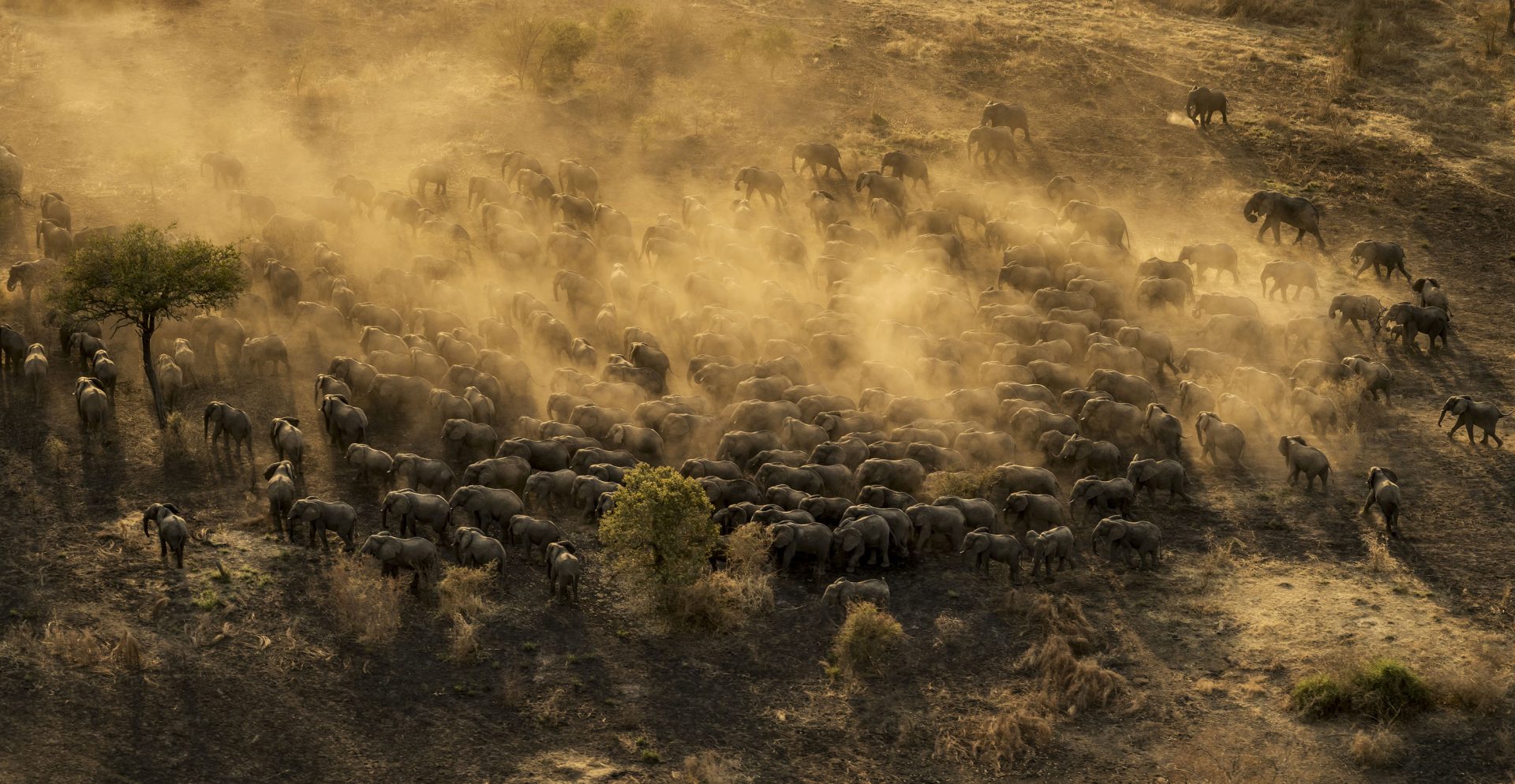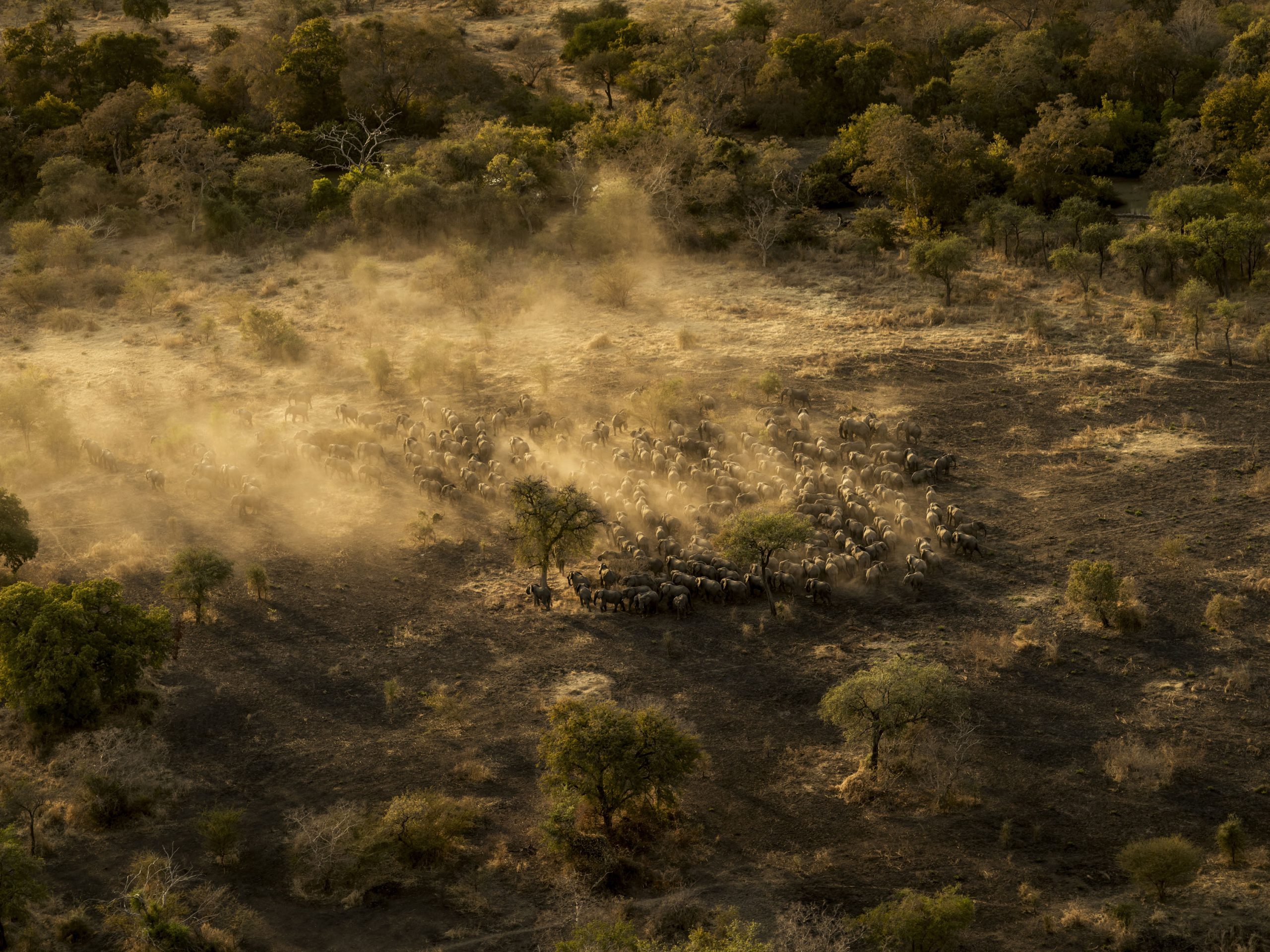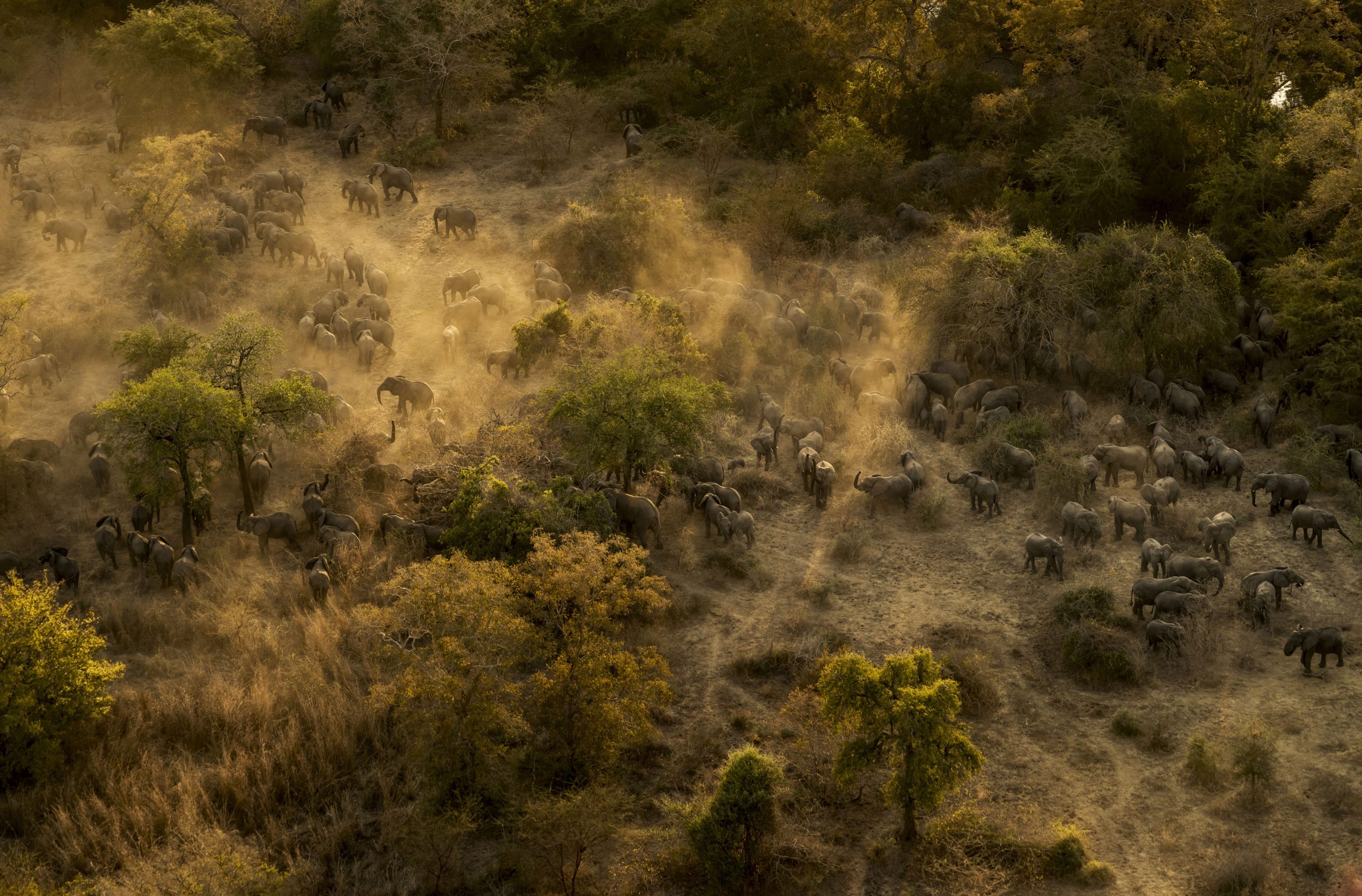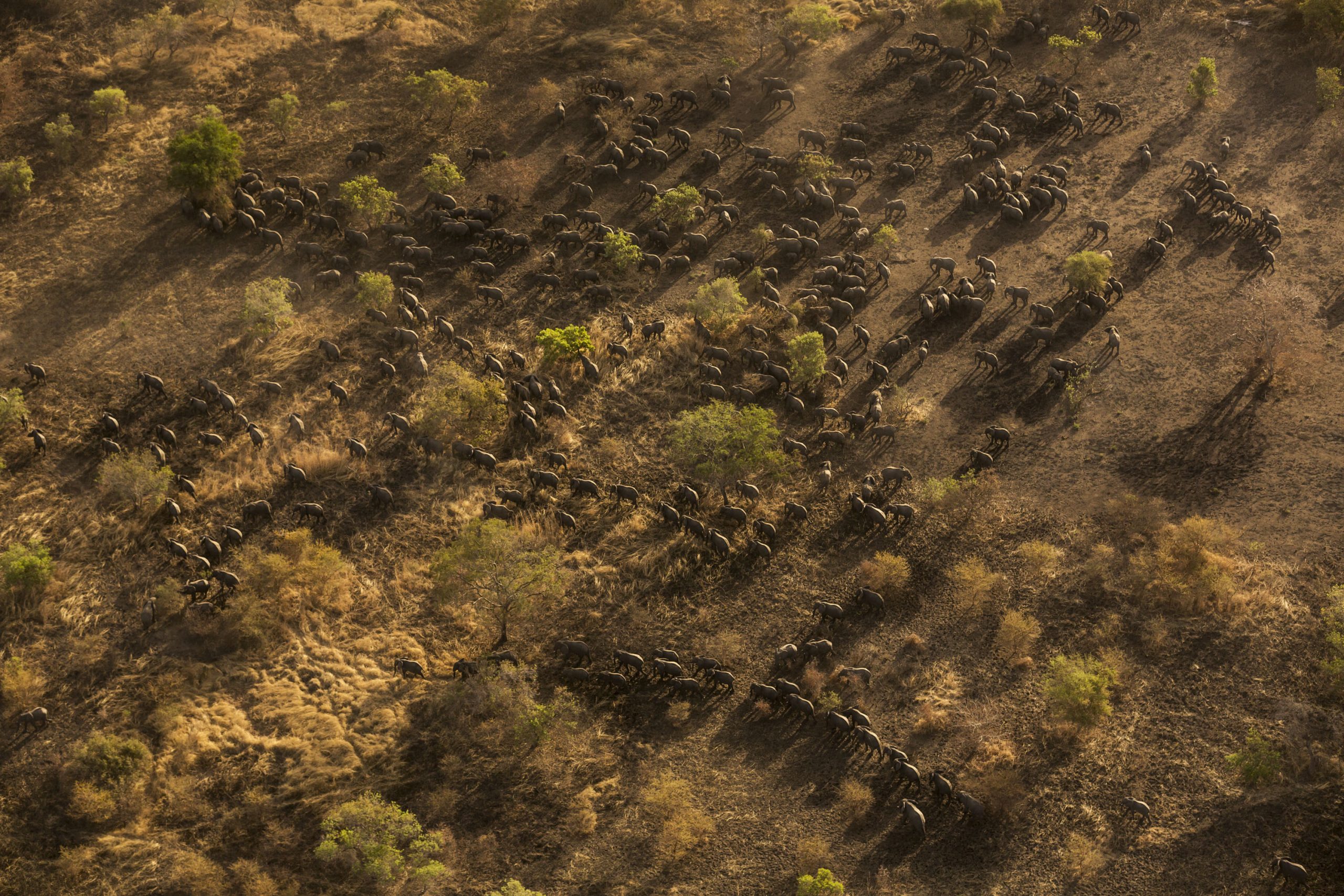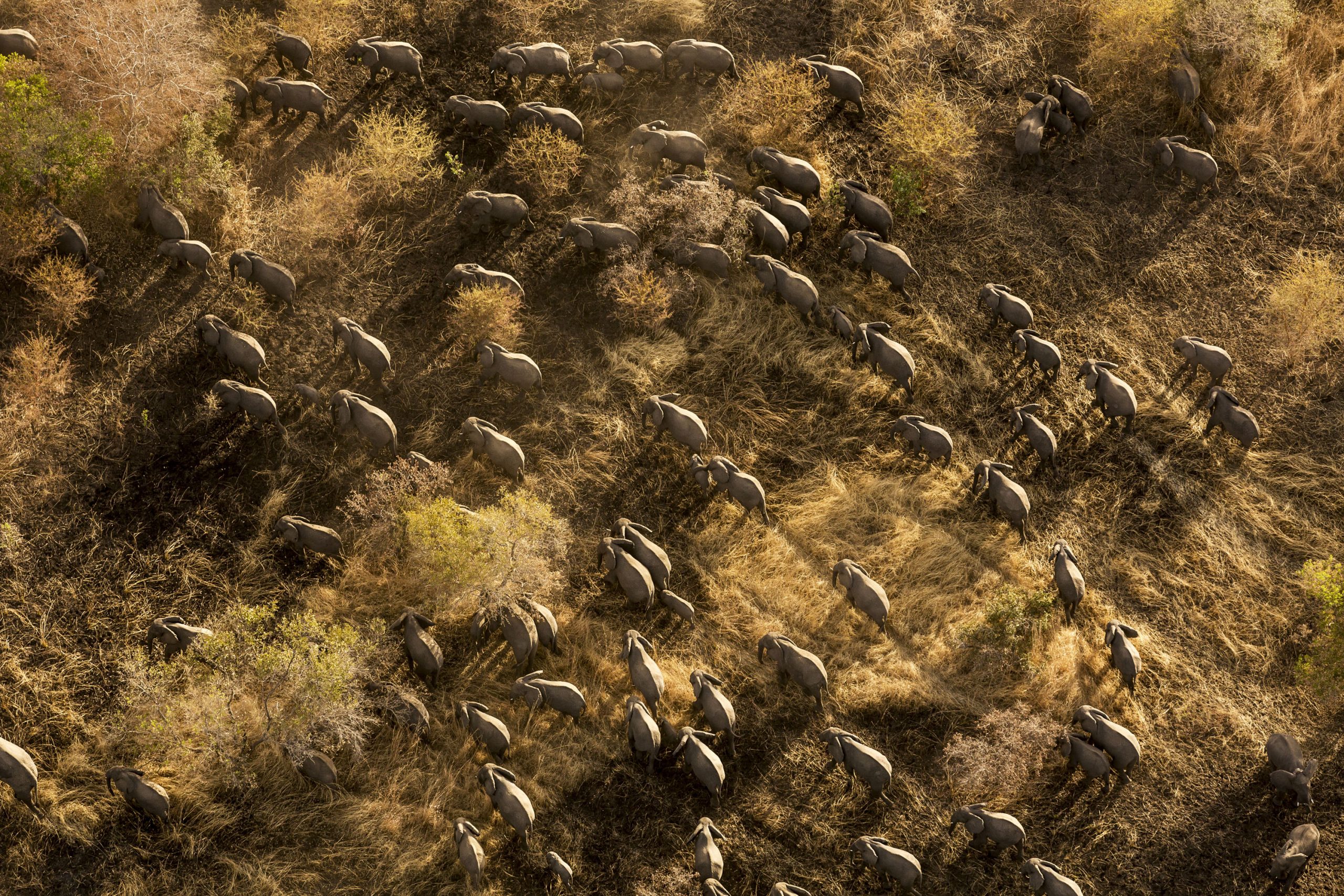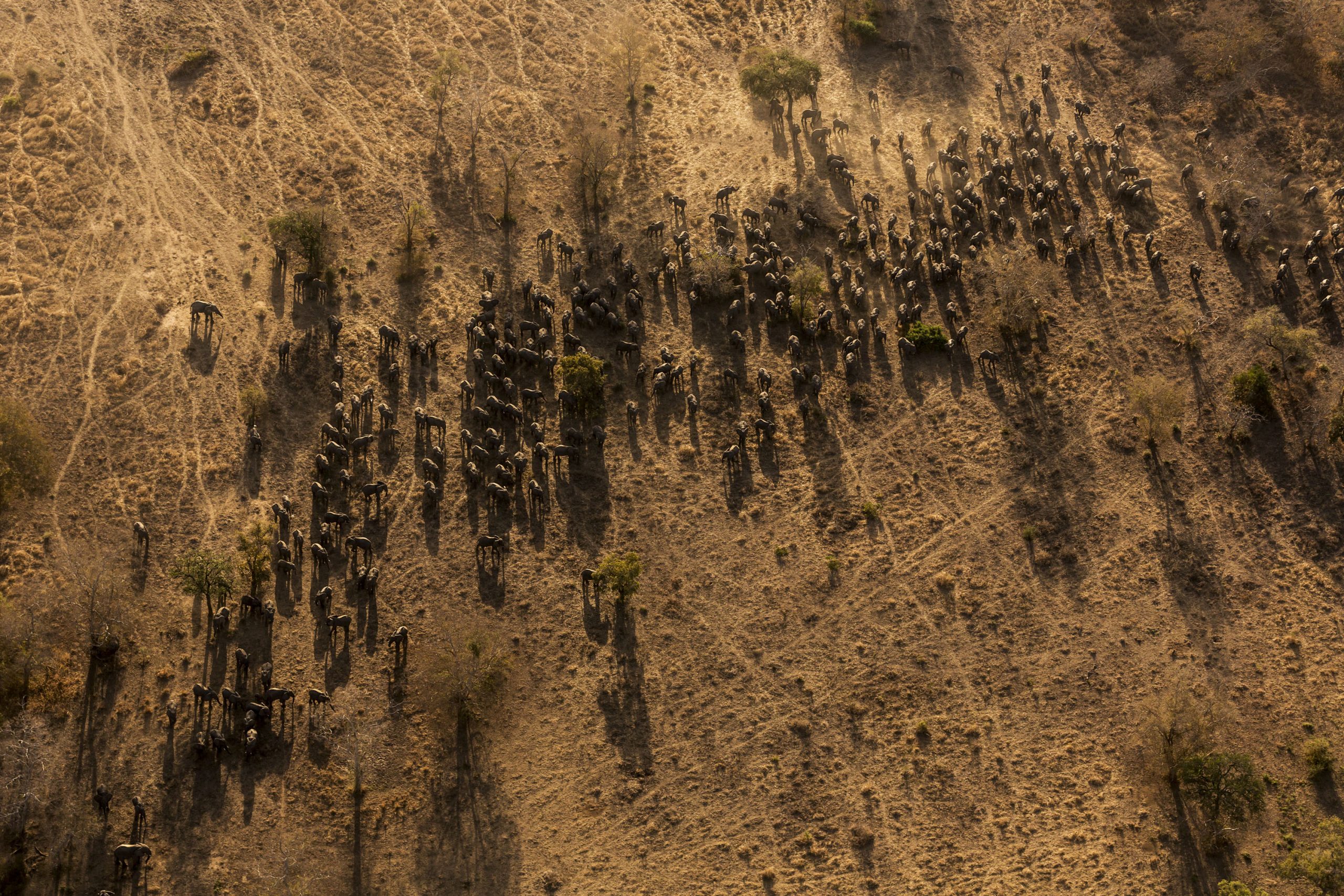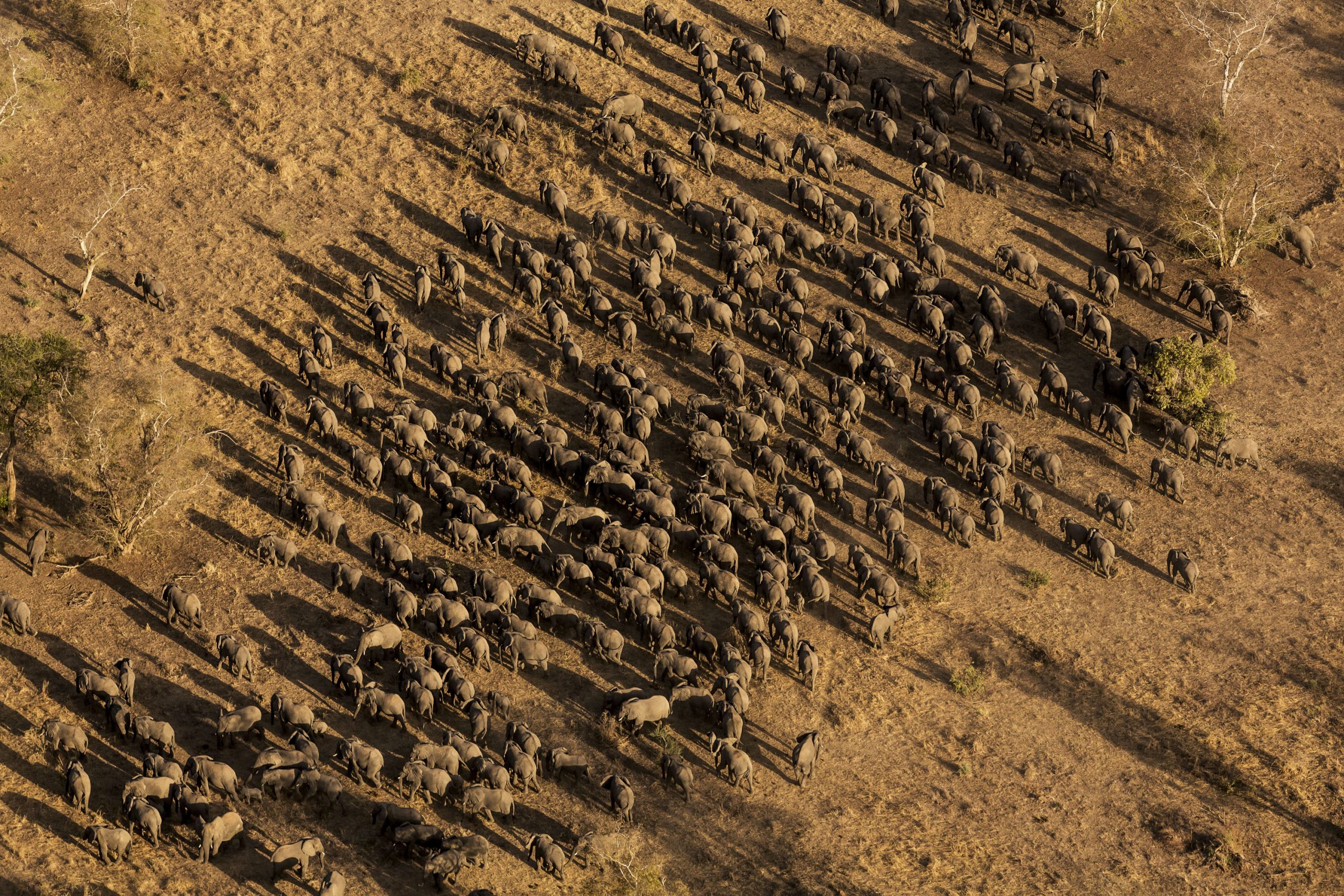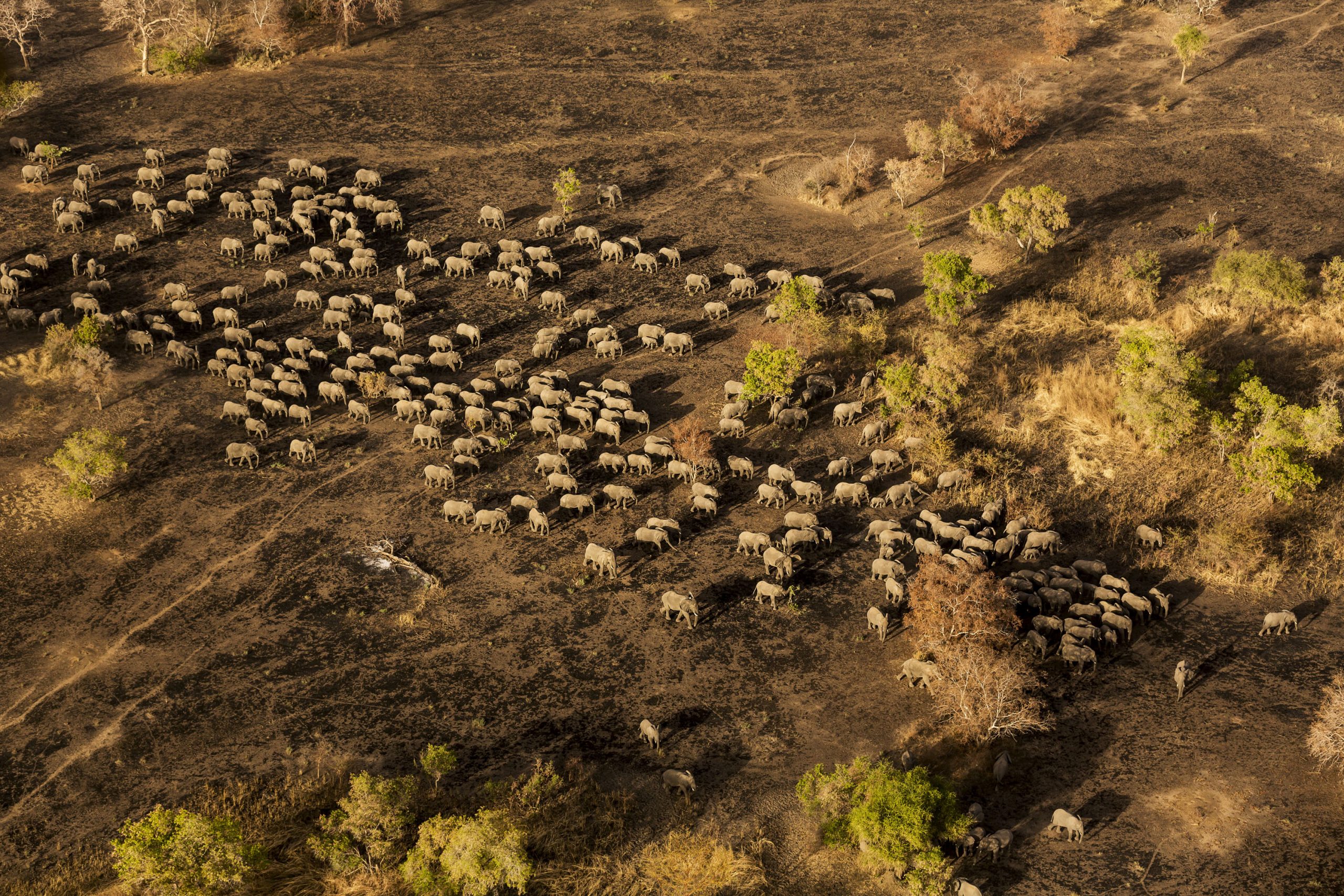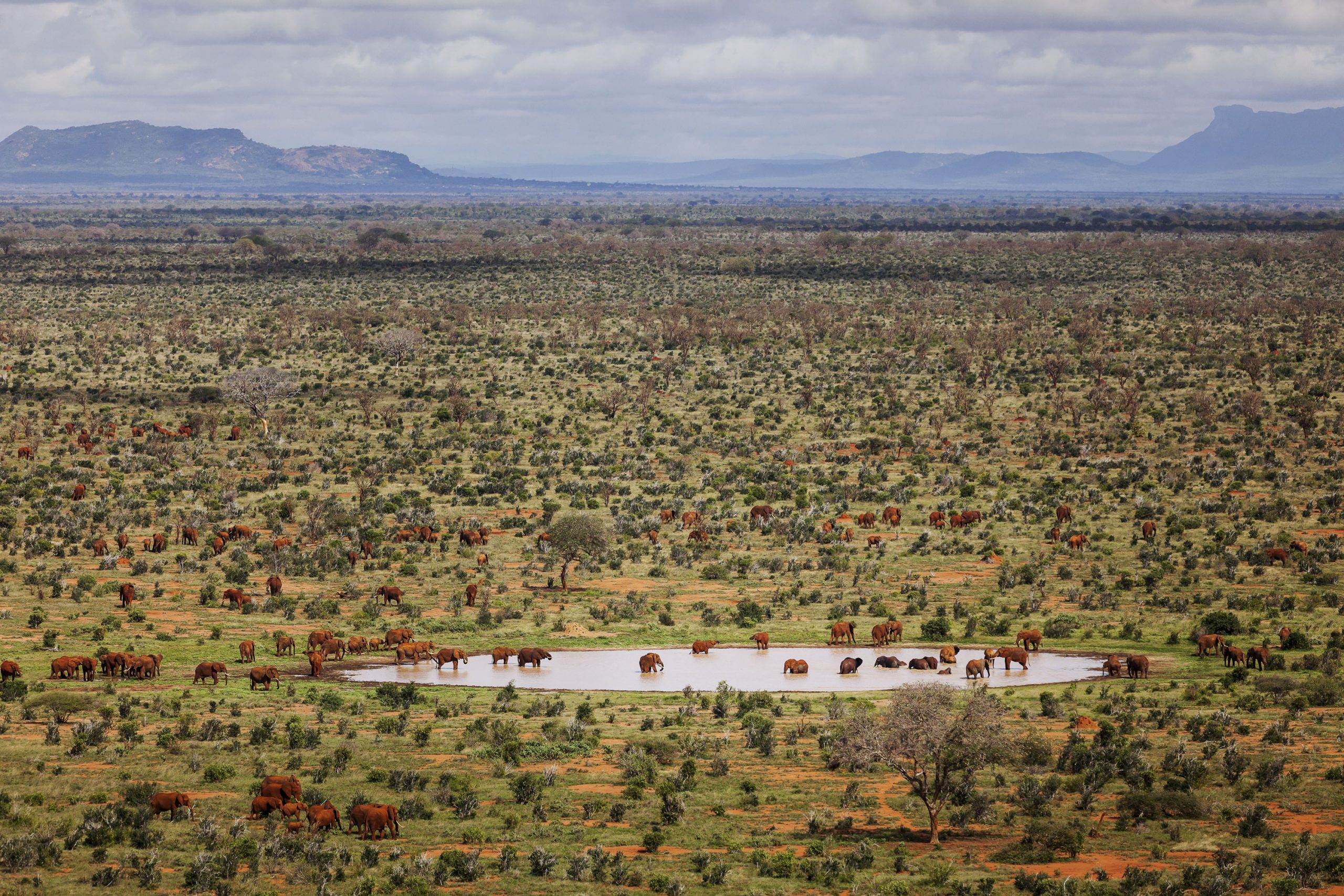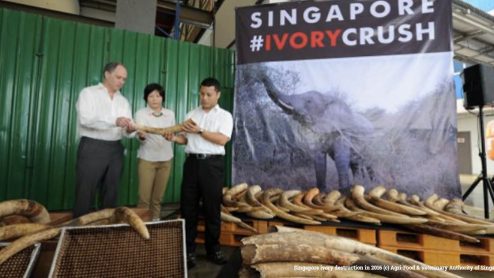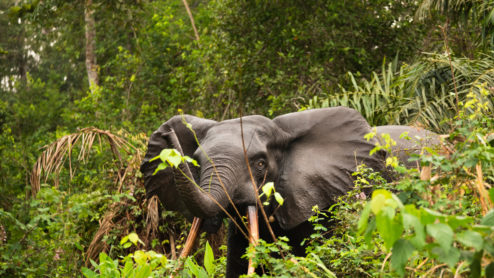World Elephant Day: “Make no mistake, these elephants know exactly why they are being hunted”
Today (12 August) on World Elephant Day, we are delighted and proud to share this special guest blog and photo essay from renowned photojournalist Brent Stirton.
Whenever someone asks me about elephants, my mind goes to flying above certain herds in Africa.
I’m strapped into the open doorway of a tiny plane to make photographs. We take off from a remote field and fly over vast wilderness. We are looking for a dust cloud, the surest sign of elephants on the move from the air. We often see it from miles away and the whole atmosphere in the plane changes as the fatigue leaves our bodies.
The pilot edges us closer and the dust becomes alive with moving grey bodies. It’s usually sunset or dawn, so the light is low and moves among the elephants; it is truly beautiful.
On a few occasions I have been very lucky – there are so many they seem to flow across the landscape, a river of precious and rare; primal and sentient all at once. I look down from my privileged position and marvel, just marvel at what I am seeing. Then it always dawns on me, just 10, 15 years ago, this herd was 10, 20 times bigger and how much more magnificent must that have been. I am sure it would have been overwhelming to see it.
I know photographers who saw those herds from the air. They speak of it with wonder in their voices; I am more jealous than I have ever been, just to hear it told.
The tragedy of these large herds, however, is that they are often formed when elephants are afraid. They come together for safety in numbers when they are most hunted and most fearful.
When I look closely at my images of herds in places with huge poaching issues, I rarely find elephant babies in my pictures. Elephants don’t breed when there is danger, they don’t want to subject their children to the trauma they are experiencing. There are even reports that their tusks grow more slowly or stop growing at all.
Make no mistake, these elephants know exactly why they are being hunted. When people ask me why we should care about elephants, I don’t have a complicated answer. I believe they have exactly the same right to exist that we have.
It’s an astonishing arrogance not to care about these animals and these incredible wild spaces. It’s equally arrogant to not seek to understand how all these things are interconnected and how they make our planet possible. Surely, a purely practical world would be a vastly poorer place? The absence of beauty, of music, of all things creative. Nature’s wonder is greater than anything humans have ever created.
If there has ever been a civilisation in need of humbling, it is ours. I defy anyone to spend time around elephants, see their dignity and understand their society and not be humbled in the process.
The Earth has existed for far longer than we have and it will be here when we are gone. The same cannot be said for elephants, but that is a choice we make in real time, now.
I often say that if I was a billionaire, I would try to give everyone alive six weeks in nature just so they could feel their true place in the world. One week of that would surely be devoted to elephants.

